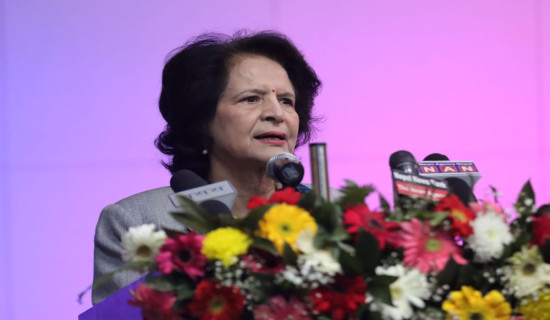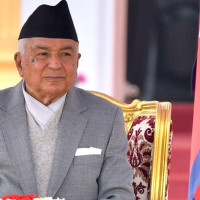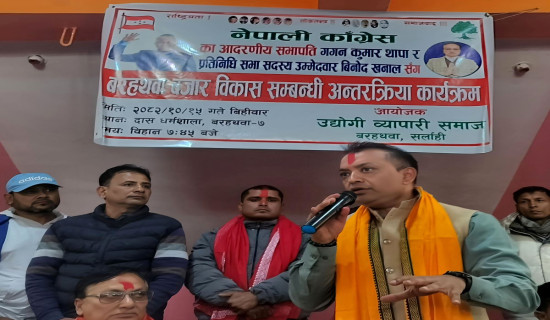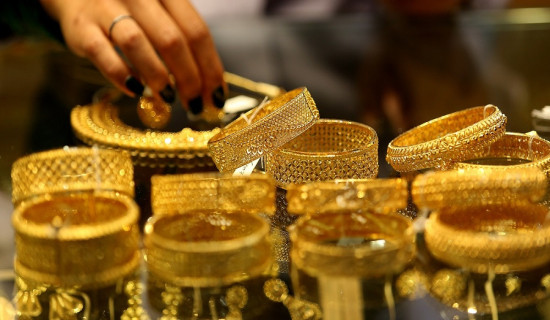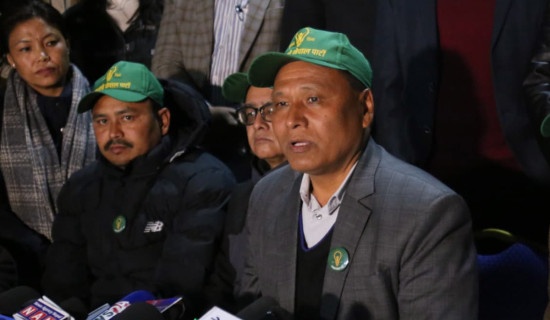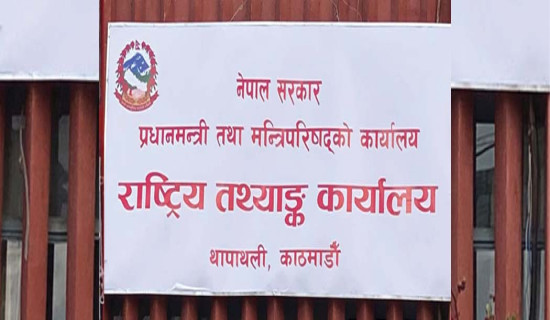- Friday, 30 January 2026
KMC unveils 25.76 billion budget for 2025/26
Kathmandu, July 14: Kathmandu Metropolitan City (KMC) has unveiled a budget of Rs. 25.76 billion for the upcoming fiscal year 2025/26, giving high priority to infrastructure development.
Deputy Mayor of Kathmandu Metropolitan City Sunita Dangol presented the income and expenditure estimates for the next fiscal year 2025/26 at the 17th municipal assembly on Sunday.
The KMC has announced the budget focusing on accelerating infrastructure development, job creation, provision of quality and healthy goods and heritage conservation.
Dangol said that various documents such as the Constitution, 16th plan, and policy content received from the federal and provincial governments, have been taken as guidelines while formulating the annual policy, programmes and budget for the upcoming fiscal year.
She said that in the coming fiscal year, infrastructure projects within the Kathmandu Metropolitan City area have been given high priority, while programmes to manage solid waste management, improving the school education system, promoting good governance, increasing the capacity of urban health promotion centres, and increasing employment and income by promoting the ‘One Ward One Enterprise Programme’ have also been given priority.
The next year’s budget of the KMC is about Rs. 860 million more than the current fiscal year’s budget. The metropolis had presented a budget of Rs. 24.90 billion for the current fiscal year 2024/25.
In the budget, it is estimated that around Rs. 25.11 billion will be accumulated in the reserve fund of the metropolis.
Out of this, it is estimated that a total of Rs. 20.12 billion will be managed through internal income and bank balance of Kathmandu Metropolitan City, while Rs. 4.98 billion has been ensured as grants from the federal government and the provincial government through equalisation, conditional and revenue sharing.
The metropolis has allocated the highest budget of Rs. 12.80 billion which is 51 per cent of the total budget for infrastructure development.
Similarly, it has allocated Rs. 753 million for economic development, Rs. 5.02 billion for social development. The allocation for economic development is 3 per cent of the total budget and 20 per cent for social development.
The metropolis has allocated a budget of Rs. 3.01 billion (12 per cent) for good governance and related sectors.
Likewise, the KMC has allocated about Rs. 3.51 billion for office operation and administrative expenses. It is 14 per cent of the total budget allocation.
The metropolis aims to reduce the rising unemployment rate by providing skills and training in the country to create self-employment and reduce the rate of going abroad, and to provide quality goods and services to the people by prioritizing food quality, she said.
To make revenue collection effective for the upcoming fiscal year, the metropolis has prioritised identifying new taxpayers in business taxes, coordinating and facilitating taxpayers by visiting businesses and business premises.
In order to bring taxpayers who are not included in the tax net, a 10 per cent discount has been given to taxpayers who pay taxes by mid-January 2026.
Arrangements will be made to coordinate and collaborate with the federal government to collect existing taxes through a single-window system.
In addition, to increase ownership and confidence towards tax, referral fees have been made free for some tax headings.
According to the constitutional provisions, the local level should have brought the budget by Ashad 10, but the delay was due to internal conflict within Kathmandu Metropolitan City.
Deputy Mayor Dangol even apologised for the delay in bringing the budget.






